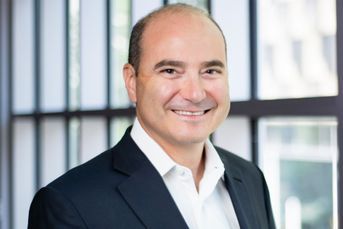Soaking the rich is institutionalized
Bruce Kelly sheds light on the sleight of hand that investment banks and wirehouses play when charging fees to the very rich for investment advice.
The very rich are different from you and me, F. Scott Fitzgerald once observed.
He obviously never talked to financial advisers about the sleight of hand that investment banks and wirehouses play when charging fees to the very rich for investment advice. In that regard, the most baubled and bangled Americans are as clueless about what they really pay for financial advice as anyone who draws a paycheck.
Remember, Americans are wholly unaware of the differences between stockbrokers, who charge a commission for services, and registered investment advisers, who charge fees. The 2008 Rand study commissioned by the Securities and Exchange Commission showed that most Americans don’t know the difference between advisers and brokers; likewise, they don’t understand the types of fees they are paying for service.
And as lines blur be-tween the two sides of the financial advice industry, with the rise of “hybrid” advisers who charge both fees and commissions, the broad public will remain mystified about what they actually pay brokers and advisers for years to come.
Skimming the cream
Some say the financial services industry at large likes it this way. If consumers can’t figure out the fees they’re paying banks and brokers, the more cream there is for those financial institutions.
The question bankers and brokers face each day is simple, those observers claim. It’s not, “What have you done to help your clients today?” Instead, it’s, “What have you done in the past 12 hours to increase revenue to the firm?”
Registered investment advisers — the people who charge a fee and then lucidly explain that fee to their clients — routinely see this pattern. They regularly observe that wealthy clients with accounts at large financial institutions lack a clear understanding of such fees.
And that lack of understanding at times turns into a business opportunity for financial advisers.
Prospects come into the office and proclaim that they are paying 50 or 75 basis points on a portfolio of $1 million or $5 million. They scoff when the new adviser counters with his or her fee structure, which could be 100 basis points to manage the money and another 60 to 80 basis points for trading and reporting.
That disbelief changes quickly once the adviser shows clients the discrepancy between perception and reality in what they are paying.
“Clients don’t understand their account statements,” said Martin Murray, chief operating officer at Financial Network Group Ltd., an RIA with $900 million in assets under management and advisement. “Clients who come in to talk to us with $5 million or $8 million in assets are carrying something in their expense ratio they don’t understand.”
Prospects with $1 million portfolios typically believe they are paying 90 to 100 basis points for advice, without taking into account mutual fund fees that can double that take, Mr. Murray said. Difficult to discern, the fees and conflicts are hiding in plain sight, he said.
“All in, those clients are paying 180 to 220 basis points,” Mr. Murray said. “It’s all disclosed, but it’s hard to make the fine print any smaller.”
And the wealthier a client is, the greater the opportunity for a financial institution to pile on fees by investing his or her money in private placements and partnerships that transact business with affiliates, industry observers noted.
“All the investment banks have their own method for maximizing their profits from their clients,” said Mark Renz, chief investment officer at Barclay Breland Family Office. Clients with $10 million and up think they’re paying 50 to 75 basis points for advice, he said. In truth, they are paying 300 to 400 basis points.
“I recently began working with a new client who has been at Goldman Sachs for over 10 years,” Mr. Renz said. “They had a large allocation to global equities, which was invested in a Goldman Sachs partnership structure instead of a separately managed account or mutual fund.”
“As opposed to investing the client’s equity exposure through a fund of funds, a more tax-efficient and cost-efficient approach would have been to use a separately managed account,” Mr. Renz said.
“That way, the client would have reduced fees and gained control over potential tax liabilities, as well as avoiding” the standard fee structure of hedge funds and other private partnerships — a 2% asset management fee along with an additional 20% of profits earned.
A Goldman Sachs spokeswoman had not commented by press time.
Boilerplate language
Wealthy investment banking clients receive offering documents or private-placement memoranda for expensive deals. These typically are loaded with boilerplate language revealing potential conflicts of interest regarding banking and other services, such as portfolio management, lending and hedging strategies.
The more a bank does business with an affiliate, the more fees it will generate, Mr. Renz said, adding that investor portfolios can underperform because it is incredibly difficult to overcome those high fees.
“That’s where firms excel in generating excess fees and returns for themselves,” Mr. Renz said. “It’s really opaque. Wealthy investors need someone who knows partnership accounting to figure out how much they are truly being charged,” he said.
So Fitzgerald was wrong. The very rich are like the rest of us, at least when it comes to understanding how they pay for financial advice.
Learn more about reprints and licensing for this article.








